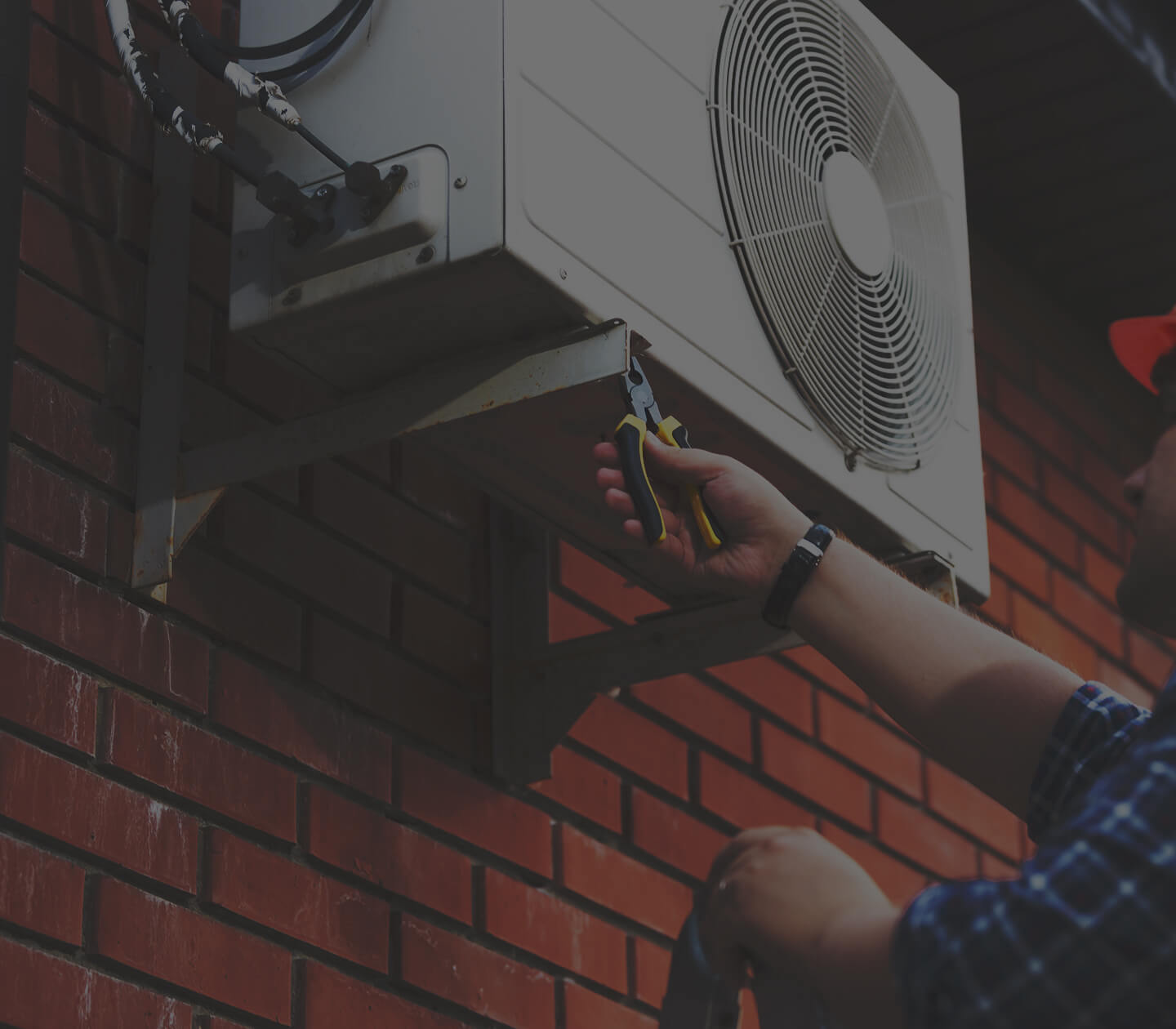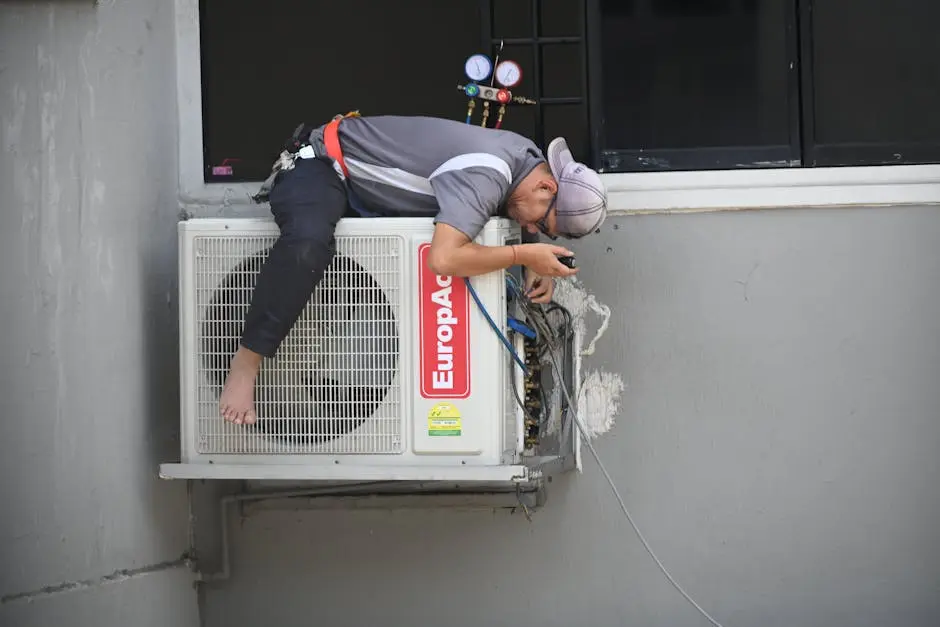When it comes to HVAC systems, it’s easy to fall victim to common misconceptions. These myths can lead to costly mistakes and ineffective repairs. In this article, we will debunk some of the most prevalent HVAC repair myths, helping you navigate the world of heating and cooling with confidence. Let’s clear the air and separate fact from fiction!
1. You Only Need HVAC Maintenance When It Breaks
Many believe that maintenance is unnecessary unless there’s a visible problem. This misconception can lead homeowners down a costly road, as regular check-ups are crucial to ensure the system runs smoothly all year long. Think of it this way: just like you wouldn’t skip your annual doctor check-up, your HVAC system needs that same preventive care.
By scheduling routine maintenance, you not only catch small issues before they escalate, but you also enhance the longevity of your system. Ignoring these scheduled check-ups can lead to unexpected breakdowns, leaving you stranded in chilly winters or hot summers. Ultimately, a little proactive care today will save you big bucks tomorrow.
2. All HVAC Systems Are the Same
Not all HVAC systems are created equal. Each system has its specifications and requirements for optimal performance. For instance, central air conditioning units differ significantly from ductless mini-split systems. Assuming one size fits all might lead to inefficient setups and higher energy costs.
Additionally, different buildings have unique heating and cooling needs. Understanding the distinct features of your HVAC system is crucial in making informed decisions regarding maintenance and repairs. This adaptability is what keeps your home comfortable year-round, ensuring that each component works synergistically.
3. Air Filters Don’t Require Regular Changes
Many homeowners overlook air filter maintenance, but dirty filters can significantly affect efficiency and air quality. A clogged air filter restricts airflow, putting unnecessary strain on your system. This not only leads to higher energy bills but can also contribute to avoidable wear and tear on your HVAC unit.
Changing your air filters regularly can lead to a remarkable improvement in your indoor air quality. This is especially important for households with allergies or respiratory issues. By ensuring that your filter is clean, you’re not just maintaining efficiency; you’re also investing in the health of your family.
4. Closing Vents Saves Energy
It might seem logical, but closing vents can actually lead to pressure issues and reduce overall efficiency. Contrary to popular belief, this action doesn’t conserve energy. In fact, it forces the system to work harder, which could lead to premature breakdowns and increased energy costs.
This is because HVAC systems are designed to operate with an adequate airflow balance. When you close off certain areas of your home, you disrupt this balance, leading to inconsistencies in heating and cooling performances. Instead of closing vents, consider evaluating your insulation or investing in a zoned system for more effective energy management.
5. You Should Always Size Up Your HVAC Unit
Bigger isn’t always better. An oversized unit can lead to inadequate humidity control and increased energy costs. While it might seem intuitive to choose a powerful system for comfort, too much capacity can cause your system to cycle on and off frequently, which often leads to wear and tear.
A correctly sized HVAC unit will maintain optimal humidity levels and provide consistent temperatures throughout your home. Working with a professional to determine the right size based on square footage, insulation, and window placement will ensure your comfort and efficiency in the long run.
6. Repairs Are Always Covered by Warranties
Many assume all repairs fall under warranty, but there are often specific conditions that must be met to receive coverage. Missing regular maintenance checks or using non-approved parts can void your warranty unexpectedly, leaving you stranded with hefty repair bills.
It’s essential to read the fine print of your warranty. Understanding what’s covered and what’s not can save you from frustration later on. Keeping detailed records of maintenance and repairs can also help in ensuring that you maintain warranty coverage.
7. Newer Systems Never Break Down
Even with newer systems, issues can arise. Regular maintenance is key to longevity, regardless of the unit’s age. Relying solely on the age of your HVAC system can lead to unexpected breakdowns that could have been easily prevented with timely check-ups.
New technology may offer more efficiency or improved features, but that doesn’t mean they are immune to problems. It’s crucial to stay proactive about maintenance and repairs, because every system, old or new, requires care to perform its best over the years.
8. DIY Repairs Can Save You Money
Attempting DIY repairs can often lead to more damage and higher costs. While the idea of tackling repairs on your own might be tempting, the complexities of HVAC systems can be overwhelming for even seasoned DIY enthusiasts. Mistakes can result in needing an even larger repair than the initial problem.
Hiring a professional is usually the safer choice. Not only do they have the expertise and tools, but they can also diagnose problems more accurately, saving you both time and money in the long run. It’s always a good idea to consider the value of professional help versus the risk of DIY blunders.
9. You Don’t Need to Consider SEER Ratings
The Seasonal Energy Efficiency Ratio (SEER) rating is important. This value indicates how efficiently your air conditioning system operates during a typical cooling season. Higher SEER ratings indicate more energy-efficient systems, which translate into lower energy bills and a reduced environmental footprint.
Investing in a high SEER-rated system might require a larger upfront cost, but the savings over time on your energy bills can outweigh those initial expenses. It’s worth doing your research and considering the long-term benefits when it comes to your HVAC system.
10. Only Heating Issues Require Professional Help
Cooling problems shouldn’t be ignored. Just like heating issues, they can escalate quickly without professional intervention. Many homeowners tend to put off repairs, thinking cooler weather can wait. However, a neglected air conditioning system can lead to complete breakdowns when the hottest days hit.
Promptly addressing cooling issues ensures that your home remains a comfortable oasis even on the sweltering days. Regular maintenance and swift professional help when your cooling system falters can help extend the life of your unit, ultimately saving you money and hassle.
11. Electrical Issues Are Easy to Diagnose
Electrical problems can be complex and hazardous. It’s best to leave them to qualified professionals who understand the intricacies. Many homeowners mistakenly think they can tackle electrical diagnostics themselves, only to exacerbate the issue or, worse, create a safety hazard.
Qualified HVAC technicians come equipped with the knowledge and tools necessary to diagnose and address these issues safely. By leaving electrical repairs to the experts, you’re ensuring the safety of your home and the well-being of your family.
12. You Can Ignore Strange Noises
Unusual sounds from your HVAC system can be warning signs, and ignoring them can lead to major issues down the line. Whether it’s a rattling, clicking, or buzzing noise, these sounds could indicate a need for urgent repairs or maintenance.
Paying attention to these audible cues can not only prevent breakdowns but also protect your investment in your HVAC system. If you hear something unusual, don’t hesitate to reach out to a professional. It’s much better to address minor issues early than to deal with significant repairs later.



